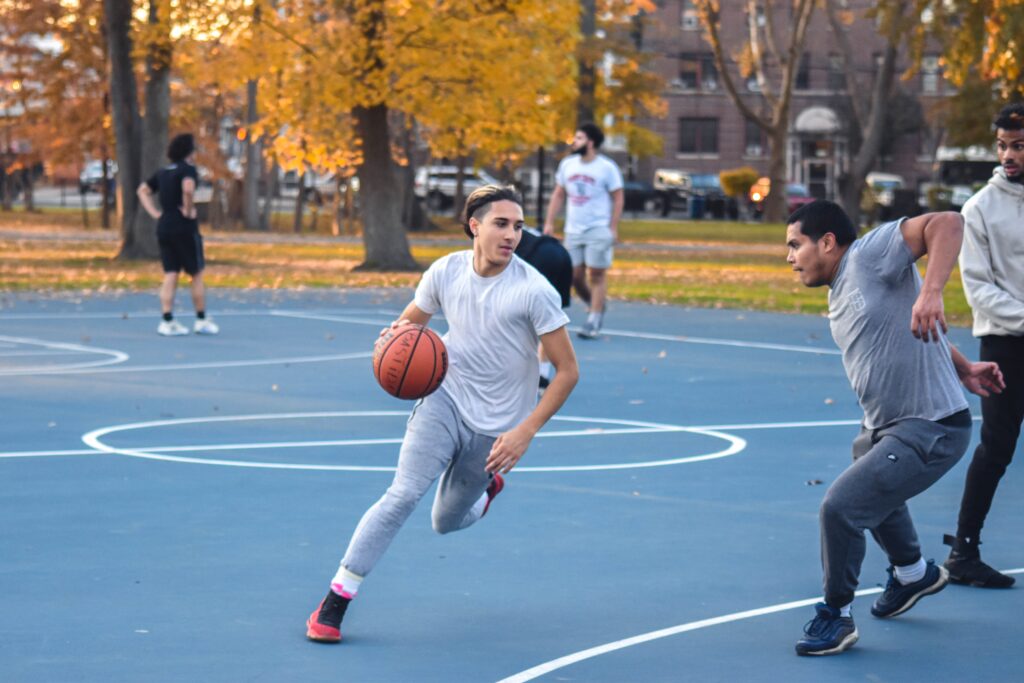
The anterior cruciate ligament (ACL) is a critical player in knee stability and health. It ensures that your bones stay aligned, preventing pain from getting worse or allowing other problems such as osteoarthritis to develop more quickly than they would otherwise. Anterior cruciate ligament (ACL) injuries are a common occurrence, particularly among athletes.
ACL reconstruction (ACLR) surgery typically yields the best therapeutic effects and postoperative evaluation scores for patients. However, even with surgery, more than 10% of patients experience complications such as reinjuries, graft failure, and muscular atrophy. These complications can lead to a decrease in the quality of life of patients. This is a major challenge for orthopedic surgeons and the medical community.
It’s crucial for us to understand how best to heal these damaged tissues so they don’t lead to further problems down the road. Stem cells are highly appealing among the various regenerative approaches that have been investigated for ACL injuries. This appeal is due to their self-renewal capacity, long-term viability, and multilineage differentiation potential.
In particular mesenchymal stem cells (MSCs) hold great potential for healing bone regeneration by secreting paracrine trophic mediators, promoting healthier tissue formation while increasing strength output. A study, Application of Stem Cell Therapy for ACL Graft Regeneration, looked into the potential of stem cell therapy for improving ACL injury outcomes.
Results of the Study
Types of Stem Cells
Bone marrow stem cells have been most widely studied for enhancing tendon-bone healing. BMSCs have the ability to differentiate into multiple cell types, making them a promising option for treating a variety of conditions.
This particular type of cell is thought to be most beneficial when treating certain injuries or conditions related to inflammation, such like arthritis pains in joints caused by diseased articular cartilage tissue being replaced by scarring. The therapeutic effects are thought to result from migration into inflammatory sites where they feed off positively charged molecules called cytokines.
This process reduces swelling around damaged areas allowing the tissue access critical to resources like oxygen delivery systems foratellar cartilage. This process also helps regulate inflammation during repair. However, BMSCs are not considered the optimal choice for all patients due to the potential for donor injury.
The application of human umbilical cord blood-derived MSCs is still under research, but they have the advantages of a nearly infinite supply and high differentiation potential. These properties make hUCB-MSCs an ideal candidate for cell-based therapies. Transplantation of hUCB-MSCs in preclinical studies has been shown to effectively enhance bone-tendon healing, and there was no immune system rejection.
Stem Cell Administration
Understanding the best method for administering stem cells to ACL injury patients is critical for long-term success. Studies show that there are many factors that can affect how these treatments work. The host tissue environment, time since injection, and cell adhesion to bone/cartilage have all played significant roles in determining how much healing will take place after treatment.
Injection techniques, culture conditions, and other factors need to be optimized to improve the efficacy of stem cell therapy for ACL regeneration. Further investigation is required to determine the optimal delivery method for stem cells in order to maximize their effectiveness. Future clinical research studies should take into account time-dependent factors in order to improve our understanding of the potential role of stem cell therapy in ACL regeneration.

Clinical Trials
Clinical trials help the medical community determine the efficacy of treatments. Stem cell therapy for ACL injury is still in its early days compared to stem cell treatment for other conditions. The researchers found nine clinical trials that were either completed or underway. The clinical trials showed mixed results.
One study found that an injection of bone marrow stem cells for ACL reconstruction surgery is safe for patients. The study also found that stem cells were able to improve patient symptoms and delay osteoarthritis progress in patients. Other studies did not find significant statistical differences between patients who underwent typical treatment and those who received stem cell therapy.
Differentiation toward the mesenchymal lineages is a complex process that is not yet fully understood. Despite this lack of understanding, many studies have shown that stem cells can be induced to differentiate into a variety of cell types, including bone, cartilage, and tendon.
While more research is needed to determine the optimal protocols for inducing differentiation, the use of stem cells holds great promise for the treatment of ACL injuries. With continued advances in medical technology, it is hoped that more patients will be able to enjoy long-term success after surgery.

